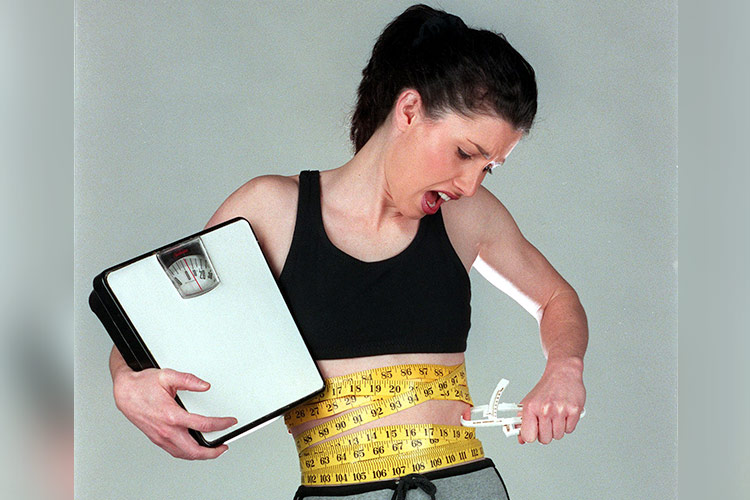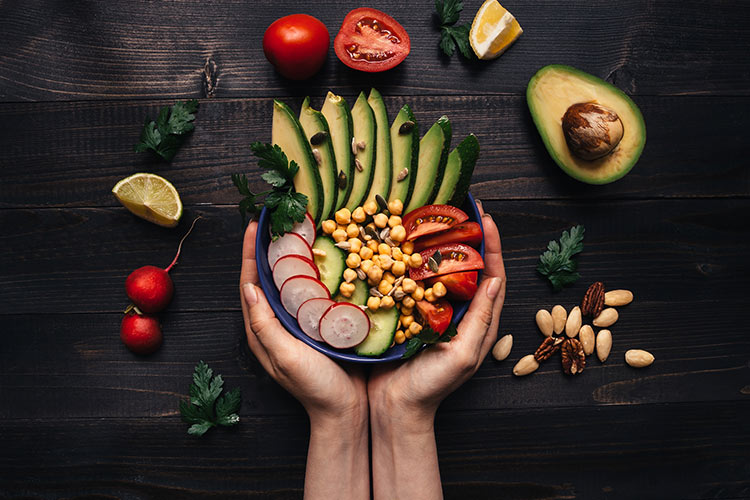
Those who have tried it know that losing weight is a hard battle.
You may feel like you’re doing things by the book but still not seeing the results.
This could be because you’re following misguided or outdated advice.
Here are the five common mistakes people make when trying to lose weight, as per The Independent.

1. Only focusing on the scale weight
It’s very common to feel like you’re not losing weight fast enough, despite faithfully sticking to your diet.
However, the number on the scale is only one measure of weight change.
Weight is influenced by several things, including fluid fluctuations and how much food remains in your system.
In fact, weight can fluctuate by up to 1.8 kilogrammes over the course of a day, depending on how much food and liquid you’ve consumed.
Also, increased oestrogen levels and other hormonal changes in women can lead to greater water retention, which is reflected in scale weight.
If the number on the scale isn’t moving, you may very well be losing fat mass but holding on to water. Fortunately, you can do several things to lose water weight.
If you’ve been working out, you may be gaining muscle and losing fat.
When this happens, your clothes may start to feel looser — especially around the waist — despite a stable scale weight.
Measuring your waist with a tape measure and taking monthly pictures of yourself can reveal you’re actually losing fat, even if the scale number doesn’t change much.
Bottom Line: Many factors can affect scale weight, including fluid fluctuations, muscle mass gain and the weight of undigested food.
You may be losing body fat even if the scale reading doesn’t change much.

2. Eating too many or too few calories
A calorie deficit is required for weight loss. This means you need to burn more calories than you consume.
For many years, it was believed that a decrease of 3,500 calories per week would result in 0.45 kg of fat loss.
However, recent research shows the calorie deficit needed varies from person to person.
You may feel as though you’re not eating very many calories. But in fact, most of us have a tendency to underestimate and under report what we eat.
You may be consuming too many foods that are healthy but also high in calories, such as nuts and cheese. Watching portion sizes is key.
On the other hand, decreasing your calorie intake too much can be counterproductive.
Studies on very low-calorie diets providing less than 1,000 calories per day show they can lead to muscle loss and significantly slow down metabolism.
Bottom Line: Consuming too many calories can stop you from losing weight.
On the other hand, too few calories can make you ravenously hungry and reduce your metabolism and muscle mass.
3. Not exercising or exercising too much
During weight loss, you inevitably lose some muscle mass as well as fat, although the amount depends on several factors.
If you don’t exercise at all while restricting calories, you’re likely to lose more muscle mass and experience a decrease in metabolic rate.
By contrast, exercising helps minimise the amount of lean mass you lose, boost fat loss and prevent your metabolism from slowing down.
The more lean mass you have, the easier it is to lose weight and maintain the weight loss.

Over-exercising can also cause problems.
Studies show excessive exercise is unsustainable in the long term for most people and may lead to stress.
In addition, it may impair the production of adrenal hormones that regulate stress response.
Trying to force your body to burn more calories by exercising too much is neither effective nor healthy.
Bottom Line: A lack of exercise can lead to loss of muscle mass and lower metabolism.
On the other hand, too much exercise is neither healthy nor effective, and it may lead to severe stress.
4. Not lifting weights
Performing resistance training is incredibly important during weight loss.
Studies show lifting weights is one of the most effective exercise strategies for gaining muscle and increasing metabolic rate.
It also improves overall body composition and boosts belly fat loss.
In fact, a review of 15 studies with more than 700 people found the best strategy of all for weight loss appears to be combined aerobic exercise and weightlifting.
Bottom Line: Weightlifting or resistance training can help boost metabolic rate, increase muscle mass and promote fat loss, including belly fat.
5. Not eating enough protein
Getting enough protein is extremely important if you’re trying to lose weight. Protein has been shown to help with weight loss in several ways.
It can reduce appetite, increase feelings of fullness, decrease calorie intake, increase metabolic rate and protect muscle mass during weight loss.
In a 12-day study, people ate a diet containing 30 per cent of calories from protein.
They ended up consuming an average of 575 fewer calories per day than when they ate 15 per cent of calories from protein.
A review also found that higher-protein diets may benefit appetite control and body composition.
To optimise weight loss, make sure each of your meals contains a high-protein food.
Bottom Line: High protein intake helps with weight loss by reducing appetite, increasing feelings of fullness and boosting metabolic rate.












